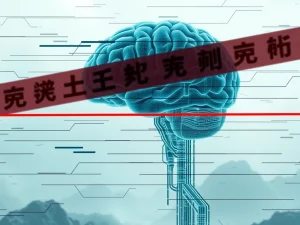Decentralized AI: Over 70 Crypto Firms Unite to Build Powerful User-Owned Future

Big Tech companies currently hold significant control over artificial intelligence development and data. But what if there was another way? Over 70 crypto firms are now collaborating to challenge this status quo by building a future powered by Decentralized AI agents that users truly own and control. This movement centers around a new open-source framework designed to enable AI agents to operate autonomously across decentralized networks.
Introducing the Think Agent Standard
At the heart of this initiative is the Think Agent Standard, launched by THINK protocol in partnership with the Independent AI Institute. The goal is simple yet ambitious: create an interoperable ecosystem for AI agents that is owned and controlled by its users, not by large corporations. Mike Anderson, a core contributor at THINK, believes this standard is essential for the future of AI. It’s designed to allow millions of autonomous onchain AI agents to interact and transact seamlessly.
Anderson explained that building AI applications is often complex and expensive due to a lack of standardization. By creating a standard for how people interact with AI, the market can align, making it easier and more cost-effective for developers to build and attract users. The protocol has already gained support from over 70 companies, including notable names like Arbitrum and Yuga Labs, signaling strong industry interest.
Why Decentralized AI Matters
The move towards Decentralized AI is driven by a desire to prevent the concentration of power seen in other digital sectors. Traditional systems often restrict data ownership and platform capabilities. Thinkagents.ai aims to reverse this by ensuring users maintain control over their data and AI agents. This vision was partly inspired by the challenges developers faced in accessing necessary computing resources like GPUs without massive investment, following releases like Meta’s Llama 2.
Anderson noted that while there are many builders in the AI space, they often lack alignment around common use cases. The Think Agent Standard provides that alignment, offering a unified way to build and deploy AI agents that benefit users directly. A key early example involved defining AI agents on a blockchain and having them play the video game Street Fighter 3, bringing together nine different companies and demonstrating the standard’s potential for collaboration and user-centric experiences.
Building the Future of AI Agents
Just as the ERC-20 standard revolutionized token creation on Ethereum, the Think Agent Standard aims to do the same for AI Agents. It introduces a modular, permissionless, and composable system where AI agents can act as independent digital entities. These agents can own wallets, interact with smart contracts, and transact across various blockchains.
Each agent is powered by Non-Fungible Intelligence (NFI), a digital identity layer providing ownership, memory, and authentication. The core NFI data resides on The Root Network, with other components deployed on connected networks. The agents consist of three main parts:
- The Soul (NFI): Provides a persistent, self-sovereign identity.
- The Mind: Governs behavior and decision-making.
- The Body: Allows interaction across different platforms and environments.
Empowering Users with Crypto AI
The first platform built on the Think Agent Standard is called SOULS. SOULS is designed as a personal Crypto AI agent that users can own, train, and customize. It connects to numerous open-source applications and can evolve over time by integrating various intelligence sources without compromising user privacy or ownership. This represents a significant shift towards putting AI capabilities directly into the hands of users.
Leading organizations across gaming, infrastructure, and generative AI, including Yuga Labs (known for Bored Ape Yacht Club), Futureverse, Alchemy, Render, Venice.ai, and Magic Eden, are actively integrating the standard into their applications. This demonstrates the standard’s practical use across diverse sectors and its potential to become a new interface for technology, allowing companies to directly engage with consumers through AI agents.
The Promise of User Owned AI
The vision behind the Think Agent Standard is to help people transition to an AI age where they own their intelligence rather than renting it. A personal AI agent is seen as an extension of oneself, like a personal dashboard. The sensitive nature of the information contained within these agents makes User Owned AI crucial. Think is standardizing the system agents interact with, backed by cryptography, ensuring security regardless of the blockchain.
This approach directly addresses data ownership concerns. Unlike traditional services where user data is copied and stored on third-party servers, potentially sold without direct user benefit (like the 23andMe example mentioned), Think agents allow users to control their data and decide who they share it with. By establishing a secure, user-owned standard, this initiative makes it harder for big tech to dominate and control the AI landscape, giving power back to the individual.
Summary
The collaboration of over 70 crypto firms on the Think Agent Standard marks a significant effort to build a decentralized, user-owned future for artificial intelligence. By creating an open-source framework for autonomous onchain AI agents, this initiative aims to challenge the current dominance of Big Tech in AI development and data control. With strong industry support and a clear focus on user ownership, privacy, and interoperability, the Think Agent Standard and platforms like SOULS are paving the way for a new era of AI where individuals, not corporations, are in control of their digital intelligence.










